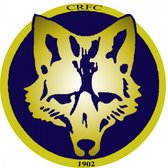
2. Reformation to the Second World War
Although Belgrave, Westleigh and Hinckley had reformed by 1920 it was five more years before the passion for rugby in the town of Coalville ignited again. In November 1925 a group of young men Tom Wooton, Cyril
Pickering and Jack Lindley approached A.G. Ball and asked him to bring about the revival of rugby in the town. Meetings were held during December of that year enabling the re-formation of Coalville RFC to go ahead with appointment of members on a committee, importantly A.G agreed to become secretary again. By the end of February 1926 enough support had been raised such that five games could be played before the end of the season. Rugby was set to flourish in the town and a new factor was that a local school, Boom Leys Technical School, chose to play “rugger” rather than “soccer” which Coalville’s other secondary school, King Edward VII Grammar School played.
At the end of their second full season, during which they had played 27 matches winning 17 and scoring 288 points for and 205 against, Coalville RFC had matured into a club that could put an “A” and “B” XV onto the field each week. In the following season the “A” XV played 28 matches winning 16 and the “B” XV playing 17 times.
In the 1929-1930, season the ‘A’ XV was outstanding running up 427 points with only 147 against, recording 19 wins and 7 losses, confidence was high enough for Coalville to commit two sides to the end of season Rolleston Seven-a-Side Competition. Fixtures had also been strengthened with Nuneaton, Burton, Ilkestone and Hinckley added. Several outstanding players were also coming to the fore including four future County players Ron Ball, Jack Ball, Lewis Stokes and Sam Smith. Also John Henry Curtis had migrated from the Broom Leys School XV to become an outstanding fullback in the “A” XV.
Coalville success continued throughout the 1930s with ever improving playing records and points scored and as the 1938-1939 season drew to a close and with only three games left to play an unbeaten Coalville faced a double-header, home and away tussle, with Aylestone St James. In the first encounter, away at Leicester on Victoria Park, the Jimmies brought back into their team Ernie Watkins, a former Jimmies’ player but then the regular fullback with the Tigers. It would be Watkins’ drop goal that would give the East Midlands their famous victory over the Australians in 1947. As the Jimmies had planned, Watkins destroyed Coalville’s ambition of going through the season unbeaten by scoring all of the Jimmies eight points, which gave them a two point victory. A week later it was revenge as Coalville trounced the Jimmies 18 points to five. But unfortunately, it was not sweet revenge, for the once in a lifetime opportunity to go unbeaten through a season had vanished, not just by the loss the week before, but unknowingly by the impending Second World War which was just around the corner. This was the last time this great team were to play together, because before the start of the next season Great Britain was preparing for an inevitable second war with Germany. Many Coalville RFC players joined up in the first weeks of the new season, thus in a very short time the team became scattered all over the world. But being Coalville players meant that they regularly kept in touch with AGB and the ‘rugger’ club.
So thirteen seasons of campaign had seen Coalville come from being, what was to all extents and purposes, a newly formed club to one of the top junior clubs in Leicestershire, certainly a club that was often the topic for report in the sporting pages of the Leicester papers. The two great driving factors which had created this success were undoubtedly A.G Ball the secretary, and although only an indirect influence, the consequence of T Hill being appointed as headmaster at Broom Leys School when it opened in 1926, and therefore the effect of ‘rugger’ being played at a school in the town. This was a factor of the greatest magnitude to the success of a rugby club in the town of Coalville. Of course, it took great leaders and great players to make a great team and, along the way as the team matured, captains of the class of Cyril Pickering, Tom Wootton, Geoff Choyce and Jack Ball, combined with players like Sam Smith, Jim Hill, Lew Stokes, Hubert Billing and the Ball brothers. Where could the team have gone on to if it had not been scattered on the four winds? One will never know.

